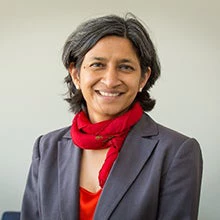What difference does COVID-19 make in the life of a girl? For millions of girls, the pandemic is turning their lives upside down – now and possibly forever. Schools closed. No safe space to learn. Elderly relatives and younger siblings to care for. Child marriage. Adolescent pregnancy. Shattered aspirations.
Hard-Won Gains in Human Capital Are at Risk
The pandemic may permanently erode the human capital of an entire generation of children, especially those from poor households. Hard-won gains in health and education over the past decade—highlighted in our new Human Capital Index 2020 Update—are at risk as essential services and household incomes crumble.
The UN estimates that 130 million more children may suffer from malnutrition, and 80 million children may miss out on life-saving vaccines due to the pandemic .[1/2] At the height of the pandemic, close to 1.6 billion children worldwide were out of school. Our estimates show that as a result of disruptions to learning, this cohort could lose as much as $10 trillion in lifetime earnings.
Without rapid and concerted actions, such as those outlined in our analysis Protecting People and Economies, the erosion of health, knowledge, skills and opportunities due to the pandemic today will undermine economic recovery and prosperity for entire nations in the future.
Fortunately, many governments are taking action – albeit within constrained budgets. The World Bank, and other International Financing Institutions, are leaning forward to help countries to protect and invest in people.
The Immediate Health Response
The World Bank’s emergency health response ($6.6 billion as of mid-September) is squarely focused on protecting people. Now covering 111 countries (including 31 countries affected by conflict, fragility and violence), the projects are helping countries to contain the COVID-19 pandemic and ensuring that vulnerable households have access to preventive and essential health, water and sanitation services. Nearly half of these project resources have already reached beneficiaries on the ground.
- India’s $1 billion health emergency project, for example, is upgrading the disease surveillance system, strengthening preparedness for disease outbreaks and revamping infectious disease hospitals.
- Fragile countries, such as Afghanistan, the Democratic Republic of Congo, Haiti and Yemen, are acquiring vital medical equipment.
- Cote d’Ivoire and Egypt are being supported to launch messaging platforms and tools to improve public awareness of COVID-19 prevention.
In many countries, these emergency health response projects support innovative solutions, such as producing and supplying 33,000 personal protective equipment kits and 82 million masks through micro-enterprises in Bangladesh.
Reimagined Service Delivery in Education and Social Protection
In addition to protecting people, World Bank projects are supporting countries to invest in people for the future. Two important avenues for investing in people are through social protection and education.
Responding to the pandemic, the World Bank’s social protection projects are already reaching over 850 million poor and vulnerable people in 51 countries, including 11 countries in conflict and fragility, with $4.2 billion in emergency support. These resources enable households to afford nutritious food and safeguard their essential wellbeing and healthy child development.
- In Indonesia, for example, project resources are reaching 40 million poor people through electronic payments.
- In India, a $750m loan has supported food distribution to 800 million poor people, in addition to various targeted cash transfers using the Aadhar unique ID and digital payments.
- In fragile countries, projects not only provide cash transfers to the poor—for example in Guinea and Republic of Congo—they are also laying the foundations of a shock-responsive safety net system.
In education, the World Bank’s response to the pandemic has already reached 43 countries, including 11 countries in conflict and fragility , with $1.25 billion in emergency education support. The projects are launching innovative multi-modal programs (using phone, SMS, TV, radio, printed materials and digital platforms) that support remote learning and empower parents to provide their children with early childhood stimulation and care.
- In Egypt, for example, the Bank supported the government in replacing national exams with online research projects, expanding digital materials to all grades and making them accessible through mobile devices and TV.
- In fragile countries such as the DRC, the Bank is supporting the government to adapt existing Interactive Audio Instruction sessions for parents to engage with their children at home.
In the process of school re-openings, the Bank is helping countries implement re-enrollment and dropout prevention campaigns , revising the academic school calendar, and developing school safety and hygiene protocols while providing basic sanitation and hygiene supplies.
Innovating for the Future
- Turning the pandemic into an opportunity for modernizing education systems; for example, Jordan and Turkey are developing new digital learning platforms and content for blended teaching and learning, opening new opportunities for children from poor households and refugees to access quality education anywhere, anytime.
- In Cote d’Ivoire, the social protection system is improving its targeting methodology through a proposed social registry to more rapidly and more efficiently identify poor and vulnerable households affected by COVID-19 and other shocks in the future.
These examples provide a glimmer of hope. But much more is needed. The profound impacts of the crisis underscore the urgency of achieving universal health coverage, strengthening social protection, and modernizing education systems, so that countries can protect and invest in people while laying the groundwork for future resilience. Governments, civil society, international financial institutions and the private sector must join forces to deploy ambitious, evidence-driven investments to help equip every person to achieve their potential.



Join the Conversation